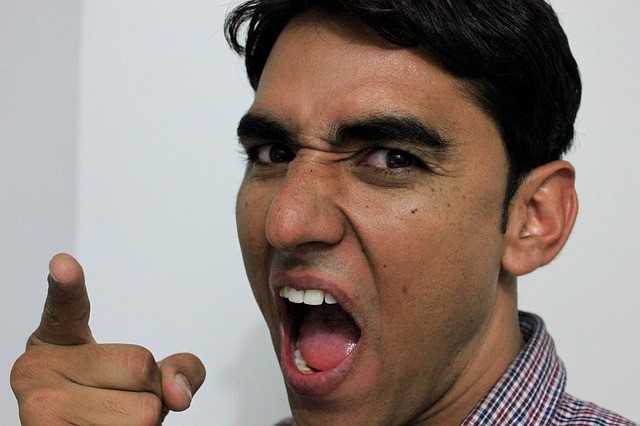 One question that has plagued me throughout my adult life as a creative person is, should I follow my passion?
One question that has plagued me throughout my adult life as a creative person is, should I follow my passion?
When I was in my twenties, the answer was a resounding YES. It was easy enough to make that decision in college when I was a student and didn’t have to worry about things like health insurance or saving for retirement. I felt free to follow whatever interested me and did.
It got considerably tougher to do that once I was out of college and in the “real world,” trying to make a living. And yet, I eventually found my way back to writing. In this post, I will discuss my own journey with the hope that it will inspire you to always make a little time for your own dreams.
Okay, So I Was Never Going to Be A Chemist
 I had started out college as a chemistry major. My parents said I’d make good money as a scientist, and I’d done well on the AP chemistry exam at the end of high school. I had enjoyed studying chemistry in high school, so it seemed like an obvious choice for my major in college. Once at the university, though, I discovered that I was a complete disaster in the lab.
I had started out college as a chemistry major. My parents said I’d make good money as a scientist, and I’d done well on the AP chemistry exam at the end of high school. I had enjoyed studying chemistry in high school, so it seemed like an obvious choice for my major in college. Once at the university, though, I discovered that I was a complete disaster in the lab.
Scientists must be one thing above all else. You think I’m going to say “smart” don’t you? Well, I’m not. They have to be cautious. Given that I’m a wild, right-brained creative, I’m sure you can imagine that what followed was not pretty. And it wasn’t.
The first day of lab class, I did the unthinkable. I was chatting with a cute boy at the next lab station, and instead of plugging my hose into the Bunsen burner and starting the gas, I plugged into the identical-looking and very powerful water hose. I turned the switch, the hose started flying everywhere, and next thing I knew, I was sopping wet. And because my last name starts with a “W”, my lab station was at the back, which meant that everyone in the two rows ahead of me were sopping wet, too.
As if things could not possibly get any worse, as I wrangled with the hose, which felt more like fighting a cobra, I heard the very angry lab assistant bellow, “TURN OFF THE GODDAMN WATER!”
You’d think such an instruction would be simple enough to follow, but with the entire class scrambling to get out of the way and the water running directly onto my white t-shirt (thank god I wasn’t yet in my hippie state and had the good sense to war a bra), I missed and flipped on the gas.
“WHAT THE F*CK ARE YOU DOING?!?!”
 Never mind that this was a Marianist institution with a priest on every corner. The lab assistant dropped the f-bomb, and willing to risk looking like he’d wet his pants for the rest of the day to bring the lab back to safety, he shoved me out of the way. With one more movement of his beefy hand, he switched off BOTH the water and the gas.
Never mind that this was a Marianist institution with a priest on every corner. The lab assistant dropped the f-bomb, and willing to risk looking like he’d wet his pants for the rest of the day to bring the lab back to safety, he shoved me out of the way. With one more movement of his beefy hand, he switched off BOTH the water and the gas.
In the silence that followed, he said, “pack up your things and go.” Somehow, his calm voice was way scarier than his angry voice, and I got the hell out of there.
Needless to say, I dropped out of the class, and the cute boy, who I’d been up until that humiliating moment, successfully flirting with, did not ask me to hang out later at his fraternity, which was a form of dating when I attended college. Instead, the boy gave me a stare that could have frozen the small fire from his Bunsen burner had he directed it there. I know he was able to get HIS working, but jeez, he didn’t have to rub it in with that nasty look.
I Become an English Major
Okay, so obviously I wasn’t meant to be a chemist. After the horrific experience in the lab, I had another false start with Psychology, but I eventually found my way to the Humanities department and declared my major as English. The classes were incredibly stimulating and I absolutely LOVED reading classic literature and writing about it. What followed were a number of deeply satisfying and stimulating intellectual experiences in the fields of literature, philosophy and history courses. The only problem? Chemists, and those majoring in business or computer science, make a lot more money after they graduate.
An Editing Gig
Once my free and easy days at college were over, it was time to leave the university and find a Serious Job. I eventually landed a position as an Editor at a legal publishing company and essentially got paid to correct the comma splices that would creep into the textbooks. It was a mind-numbing job where I would blow through my work in record speed and email my friends from college during the afternoon. There really wasn’t enough work to go around, and a year into my tenure there, management announced that they would be closing our branch. Since I was barely making enough to survive and now had the requisite entry-level experience, I found another job, this time, in advertising.
Struggles in My Professional Life
 So life moved on. I took increasingly dissatisfying office jobs at one company, but it was difficult to walk away because of the pay increases and the steady work. Finally, though, the company where I worked announced that they’d move their headquarters two hours away, and it was a good time to look for another job.
So life moved on. I took increasingly dissatisfying office jobs at one company, but it was difficult to walk away because of the pay increases and the steady work. Finally, though, the company where I worked announced that they’d move their headquarters two hours away, and it was a good time to look for another job.
Much to my thrill, I was hired at a mid-sized ad agency. I took a substantial pay decrease in order to work there because I finally had a job that honored my creativity. Or so I thought.
The thing I discovered, though, is that being creative on behalf of other people—in this case, clients—is an entirely different animal. In order to survive, you have to learn how to take risks, create “safe” options, and play the game. That means going to meetings and having your work critiqued. Like anything, some clients love you work, others don’t. More often than not, I found that I had to defend my creative strategies, not because I was attached to my work but because I believed that what I was doing was in the client’s best interest.
I also discovered that there is a TREMENDOUS amount of competition to work on the plumb accounts and on the creative campaigns. After working in advertising and having to compete for assignments within my own agency that would improve my career, I eventually had to deal with the hard realization that I was tired of the tactical games and strongly prefer a cooperative work environment rather than a competitive one. I started burning out and simply accepted whatever assignments came my way. Consequently, my career stagnated, and I started to learn web development to earn a more competitive salary.
Life Improves Slightly…for A While
I had the pleasure of reading Cal Newport’s So Good They Can’t Ignore You, and it totally re-framed my thoughts about writing because I was passionate about it. In his book, Newport makes the argument that passion is a poor reason for choosing a profession,  and proceeds to outline why people should focus on learning skills instead. Even though Newport covers writers and artists as well as those with highly technical skills, I took it as a sign that I should be moving away from writing. I had followed my “passion” and look where it got me.
and proceeds to outline why people should focus on learning skills instead. Even though Newport covers writers and artists as well as those with highly technical skills, I took it as a sign that I should be moving away from writing. I had followed my “passion” and look where it got me.
So, I set myself to learning HTML, CSS, and JavaScript, and when yet another account that I had been working on was lost to another agency, instead of firing me, the higher ups gave me a chance to work with the web developers. I learned a lot and am incredibly lucky. I even started building a side business around web development and switched to a job that required a more technical skill set. I went at my job and my side business hard. I signed up for an account on Quora and had an answer go viral (more than 250,000 views). I was named a Top Writer of 2018.
If all of this sounds great, it was…. for a while. I had a lot of fans on Quora, but I also managed to attract a number of haters. People who said I didn’t answer the question properly. Those who said I was crazy to learn JavaScript. Others even said I had no business in web development because I am a woman. I started having similar but slightly different encounters at work. Between the hostile environment at work and online, I started to have difficulty sleeping. I talked it over with my husband and we agree I should power through. And I did. Until I couldn’t.
The Crash to End All Crashes
A few weeks ago, I had a crash. I ran into a friend who, at the age of 42, was pregnant with her first child. Two years prior, my husband and I agreed to make the difficult decision not to have children. In order to build my life with him, I knowingly walked away from my dream of becoming a mother. And life went along fine until I ran into my pregnant friend. I was simultaneously happy for her and up against the hard realization that I never properly grieved.
 Realizing that I could not move forward until I dealt with the difficult emotions I was experiencing, I went home to journal about it. Through my journaling process, I realized that it was the second dream I had abandoned. The first dream was becoming a best-selling author and earning a living writing the books that I wanted to write. Books other people would enjoy and gladly buy. I decided that my days of writing for other people were done. I had allowed pressure to earn a lot of money push me into a field that brought me almost no joy, other than the thrill of creating webpages. And that’s when it dawned on me: I like to create stuff, and if I was to be a happy and healthy person, allowing time to write and create must be part of my life.
Realizing that I could not move forward until I dealt with the difficult emotions I was experiencing, I went home to journal about it. Through my journaling process, I realized that it was the second dream I had abandoned. The first dream was becoming a best-selling author and earning a living writing the books that I wanted to write. Books other people would enjoy and gladly buy. I decided that my days of writing for other people were done. I had allowed pressure to earn a lot of money push me into a field that brought me almost no joy, other than the thrill of creating webpages. And that’s when it dawned on me: I like to create stuff, and if I was to be a happy and healthy person, allowing time to write and create must be part of my life.
Finding Balance
Our goal as artists is to find that happy medium. Maybe we don’t need a 6-figure job, but we do need to make enough money so that we aren’t destitute. We need to be able to take care of our own circumstances and to provide for our families if we have those obligations. And that is what I have decided to do. I took a good-enough job that gives me enough to live on and properly fund a retirement account. I also have five weeks of vacation, which allows me to take mini writing retreats. I feel I have found my happy medium, and if you have found yourself knee-deep in a life that you don’t want for yourself, then it’s time to take stock. It’s time to get to know yourself and pursue one thing that will make you happy.
Reflection for You
 Can you relate to any part of my journey? Did you give up on a long-held dream that you stuffed down because it just got too difficult to pursue? If any of this resonates with you, then it’s time to resurrect your lost dream and start devoting time to it, even if it’s a few minutes each day. Journal for 2-5 minutes on the following prompts:
Can you relate to any part of my journey? Did you give up on a long-held dream that you stuffed down because it just got too difficult to pursue? If any of this resonates with you, then it’s time to resurrect your lost dream and start devoting time to it, even if it’s a few minutes each day. Journal for 2-5 minutes on the following prompts:
- The dream I gave up on is…
- I gave up on this dream because…
- I can’t give up on my dream any longer because…
Now, make the commitment to devote ten minutes each day to your dream. If you wanted to become an artist, then pick up a copy of Drawing on the Right Side of the Brain or Mark Kistler’s You Can Draw in 30 Days and start completing the exercises. If you need to unblock as a creative, then Julia Cameron’s The Artist’s Way is an excellent place to start. If you want to become a web developer, then sign up at freeCodeCamp and start completing the challenges. And if you want to be writer, then be sure to follow my blog.

Fascinating story Laura, or was it the way you wrote it? A little bit of humor and a lot of yourself. I have written off and on, not a passion, so writing blog posts is sometimes a chore, finishing them is great. I am a creative person looking for somewhere to go. I envy your writing skill and hope the novel comes your way. My passions are My Rotary Club and someday moving overseas. Love what you are doing!
Thanks, Jacqueline, for the kind words. I am lucky in that writing comes easily to me if I’m writing about something I love. One tip I can offer is to just let yourself go when you’re writing your blog posts. Let it all out–everything you need to say–and you can always go back and edit later. Sharing this post in particular was a bit scary for me because it was so personal, but I am also finding that is what people are hungry for. If you write from a place of truth and authenticity, then people will want to read your words.
Good luck with your club, and the possibility of moving overseas is very exciting! I hope to read about your journey one day.
hello Laura,
I am fortunate enough to be one of those pepole who tackled their dreams but that’s not what I want to comment on.
What’s even more devastating than someone who gave up on a dream is someone who never had a dream in the first place.
I speak to lots of university students at my day job and the fog seems to be getting bigger. Very few of them have dreams of their own.
What advice can you offer to these people? OR those of us trying to mentor them out of the fog?
Hi Remy,
You bring up a very good point: there are a number of people (of all ages, really) who don’t believe that it is possible to do what they love. They believe that there must be a tradeoff. As a society, we engage in a lot of either or thinking: either I can be successful or I can do what I love but not both. In my experience, this is simply not the case.
I would encourage you to put together some resources for those who are struggling. Seek out books and websites and thought leaders who show them what is possible. Changing our outcomes really does begin with changing our mindset, and that’s where positive influences through helpful books and websites can be a huge help. In this digital age where we are increasingly bombarded by negative messaging, we have to be increasingly careful about what we allow in. I hope this helps. If you need further suggestions, though, please feel free to contact me.